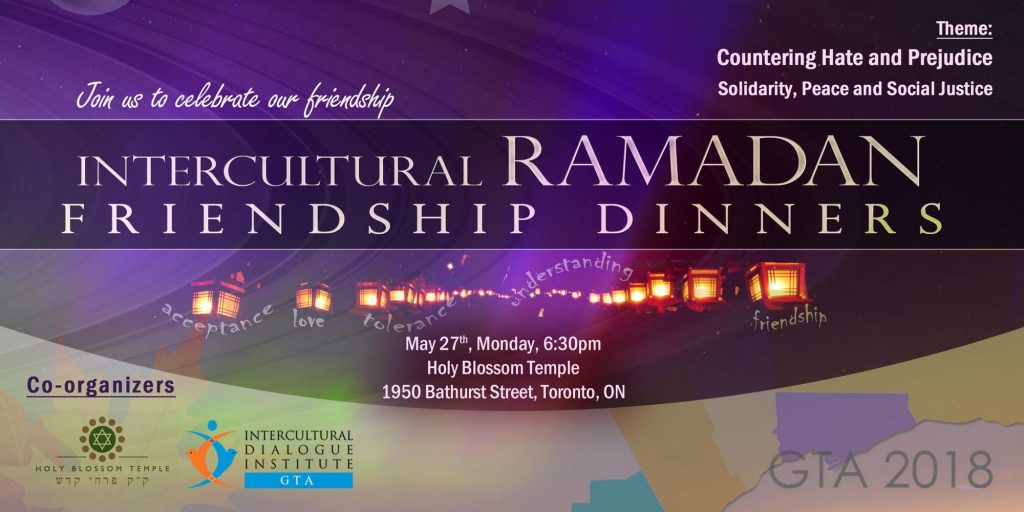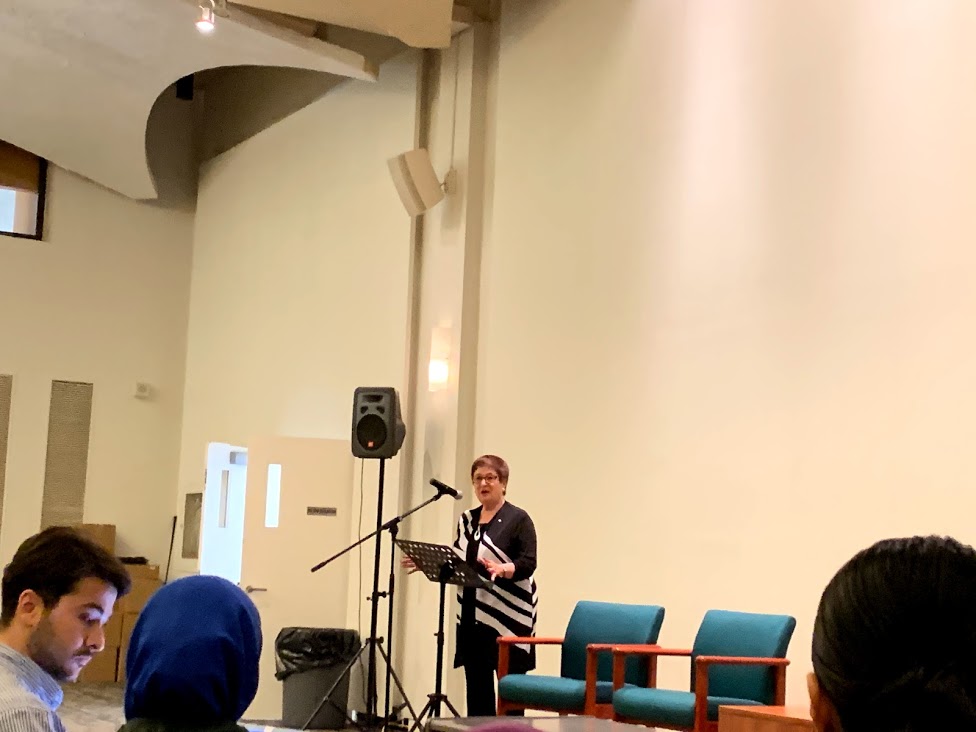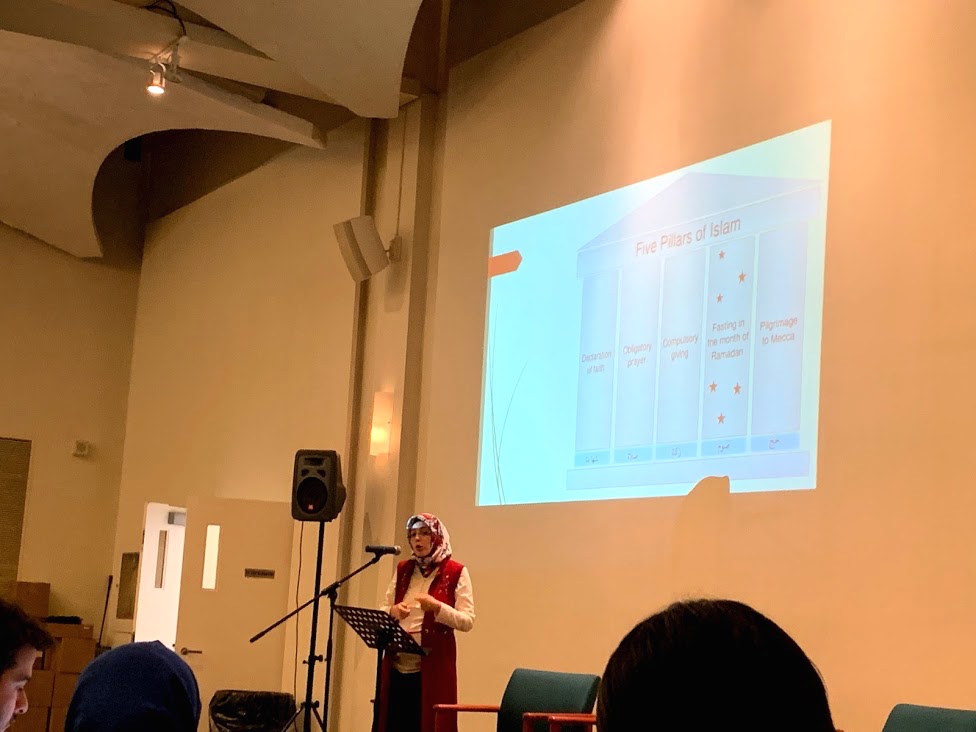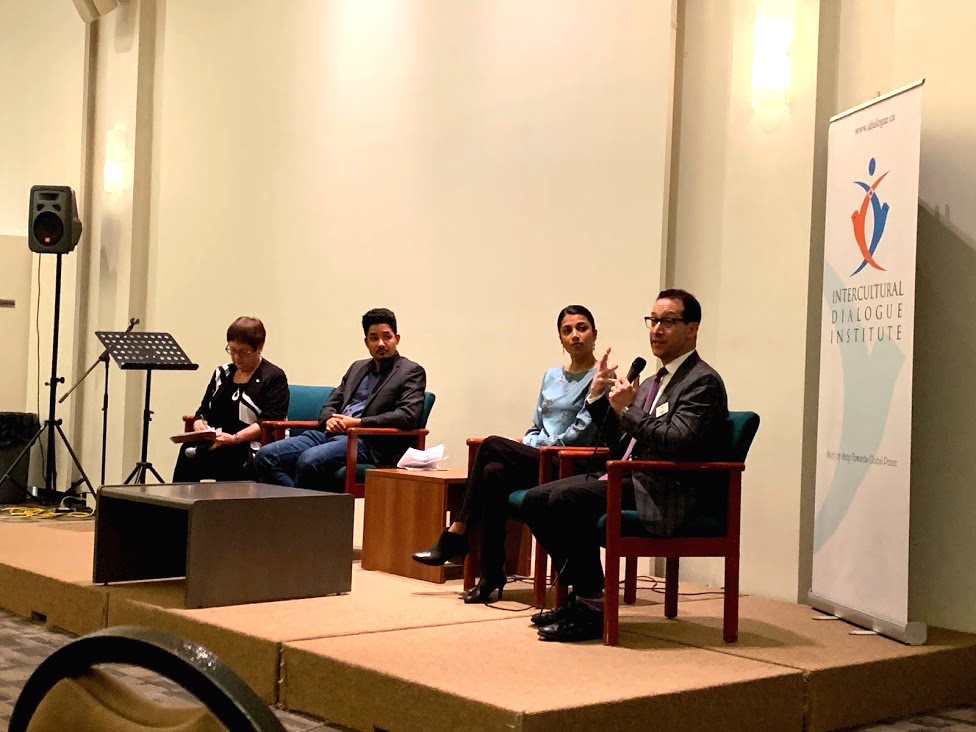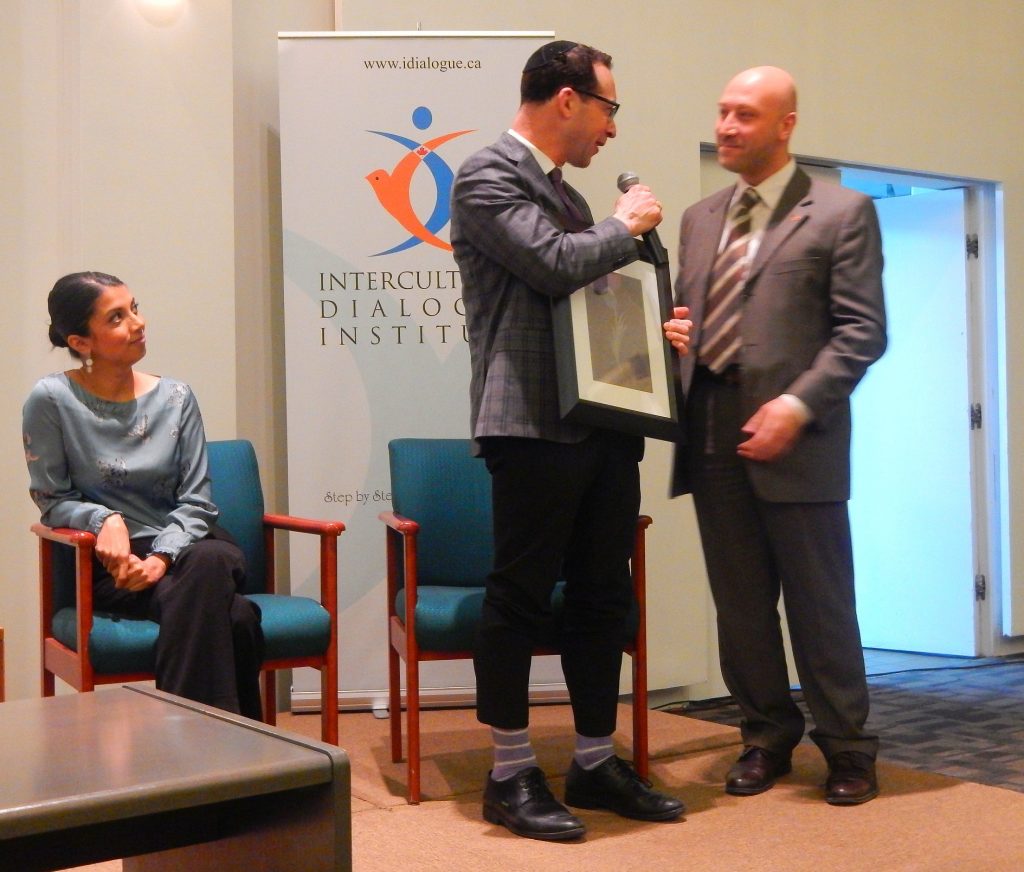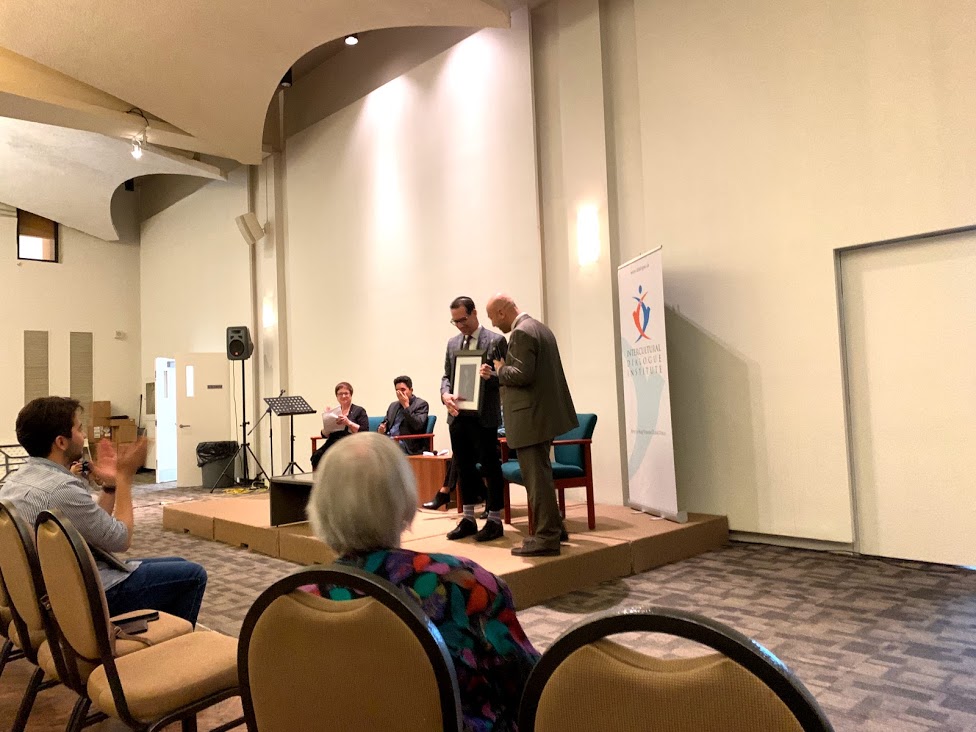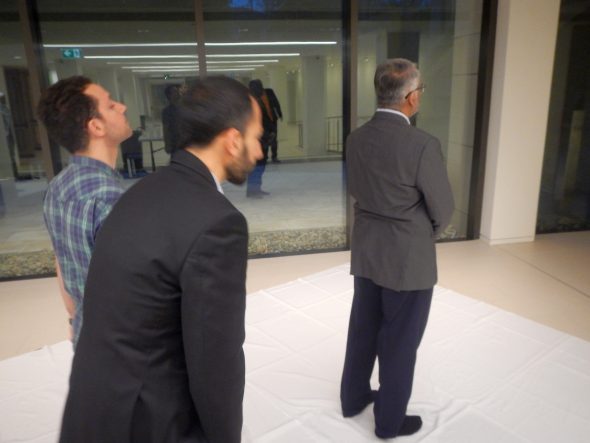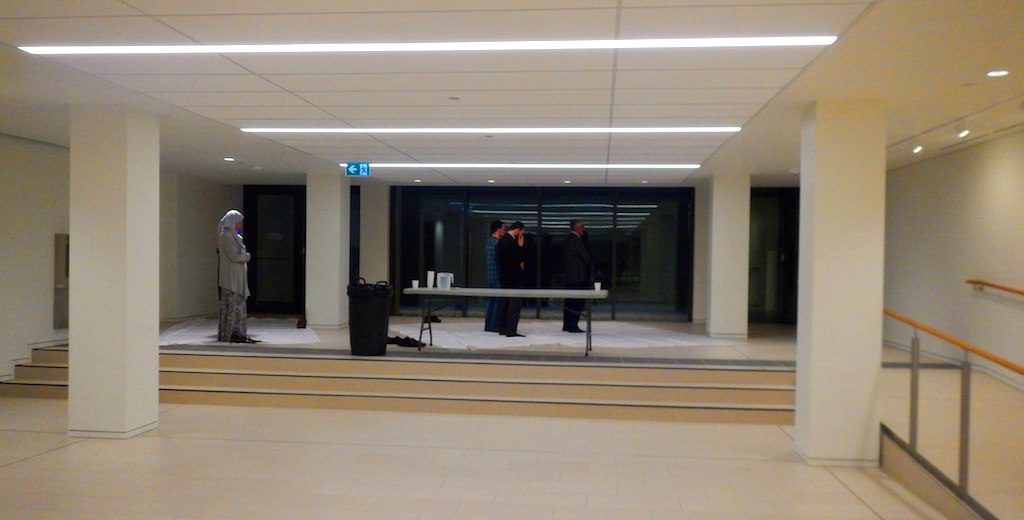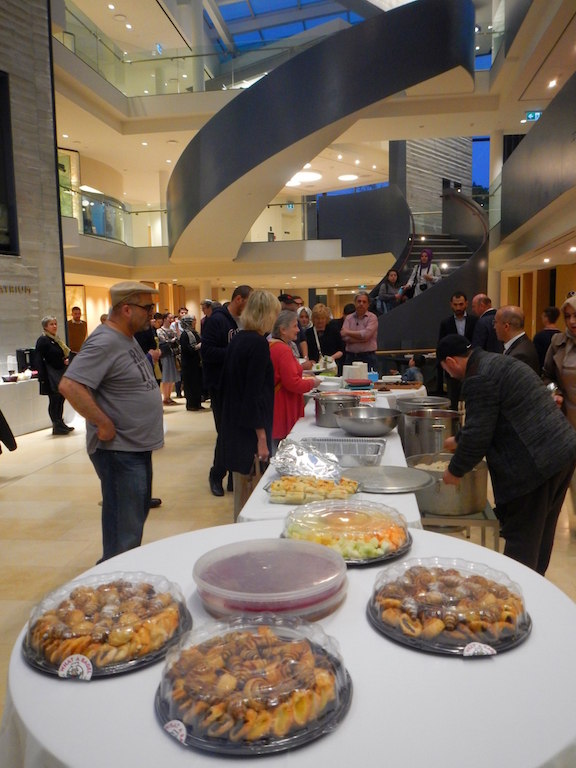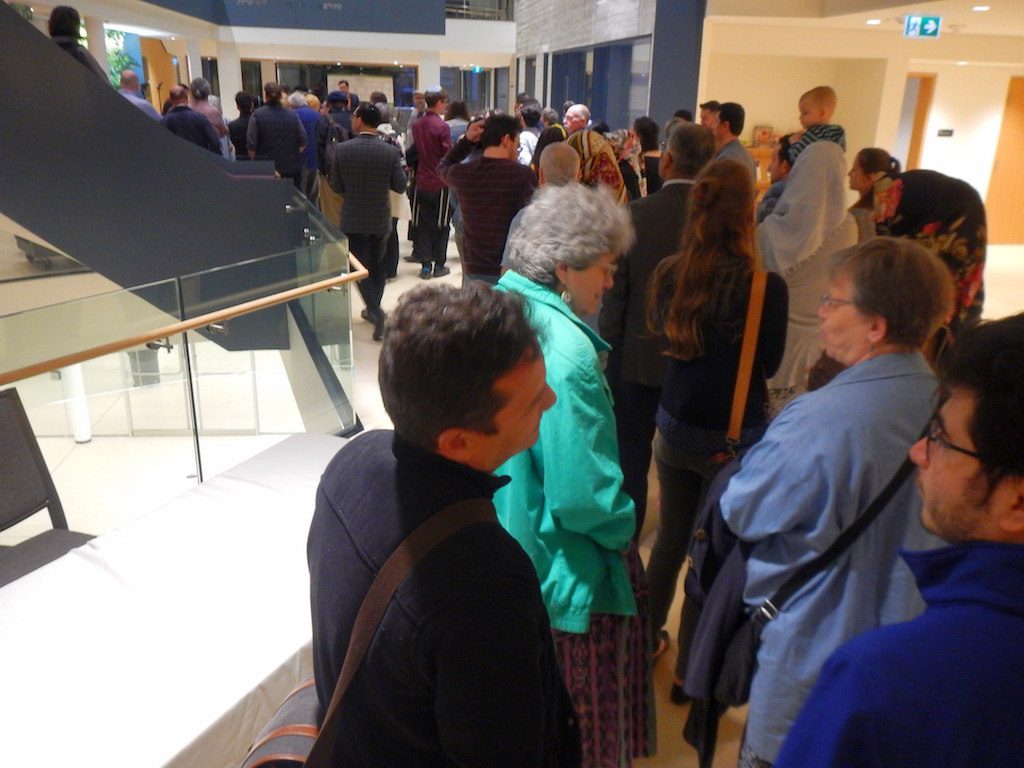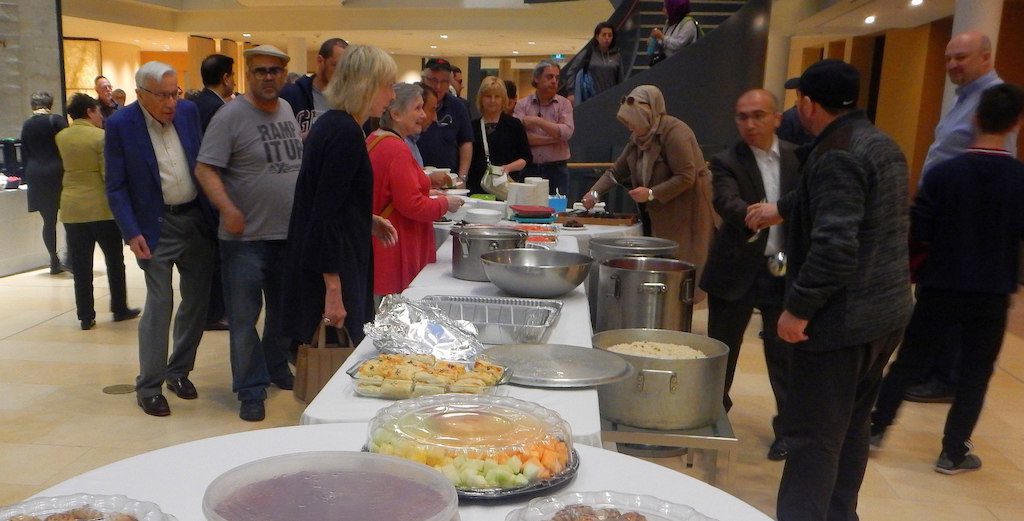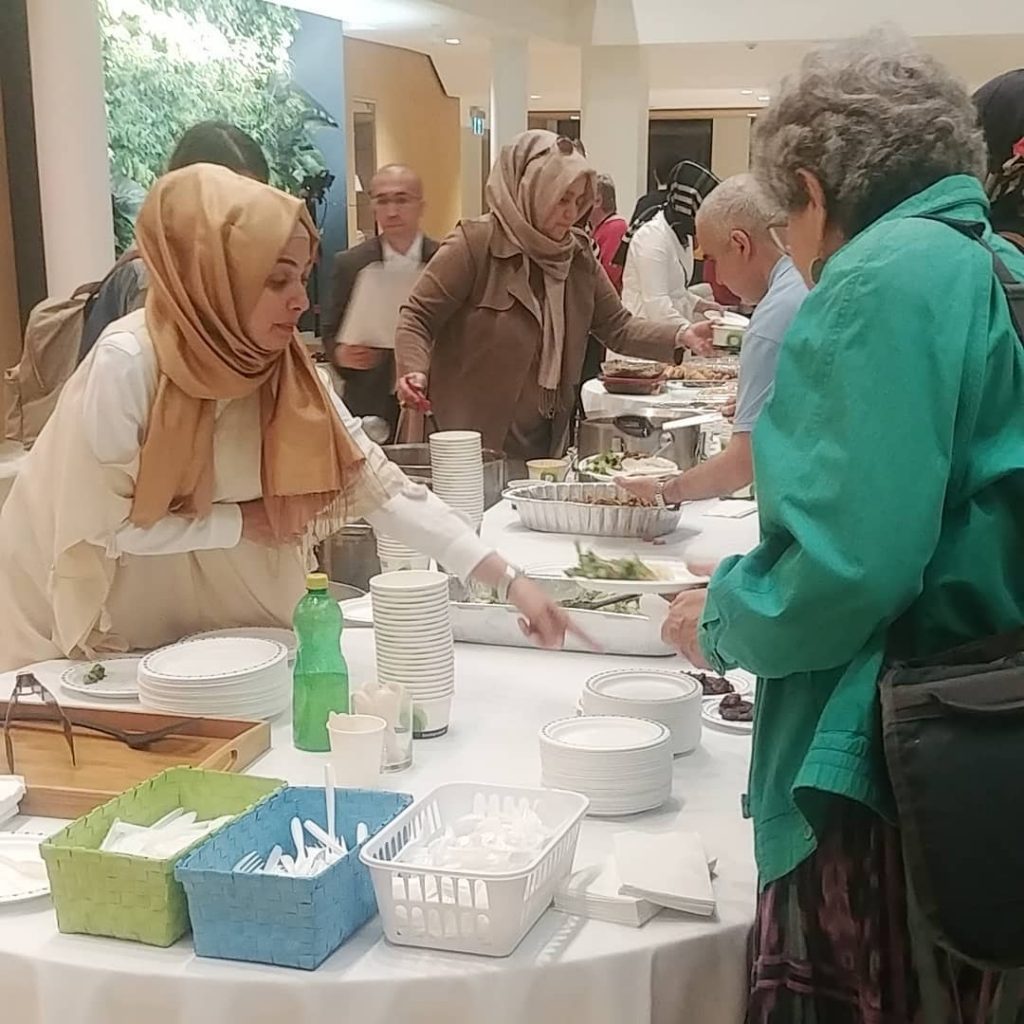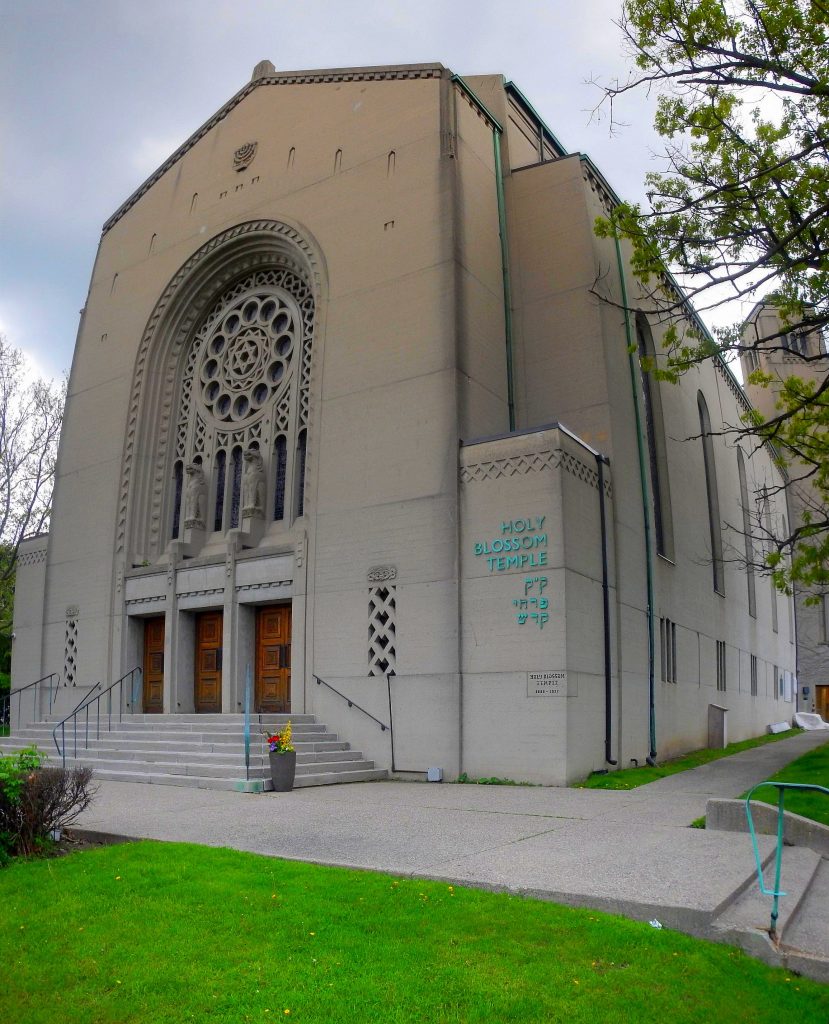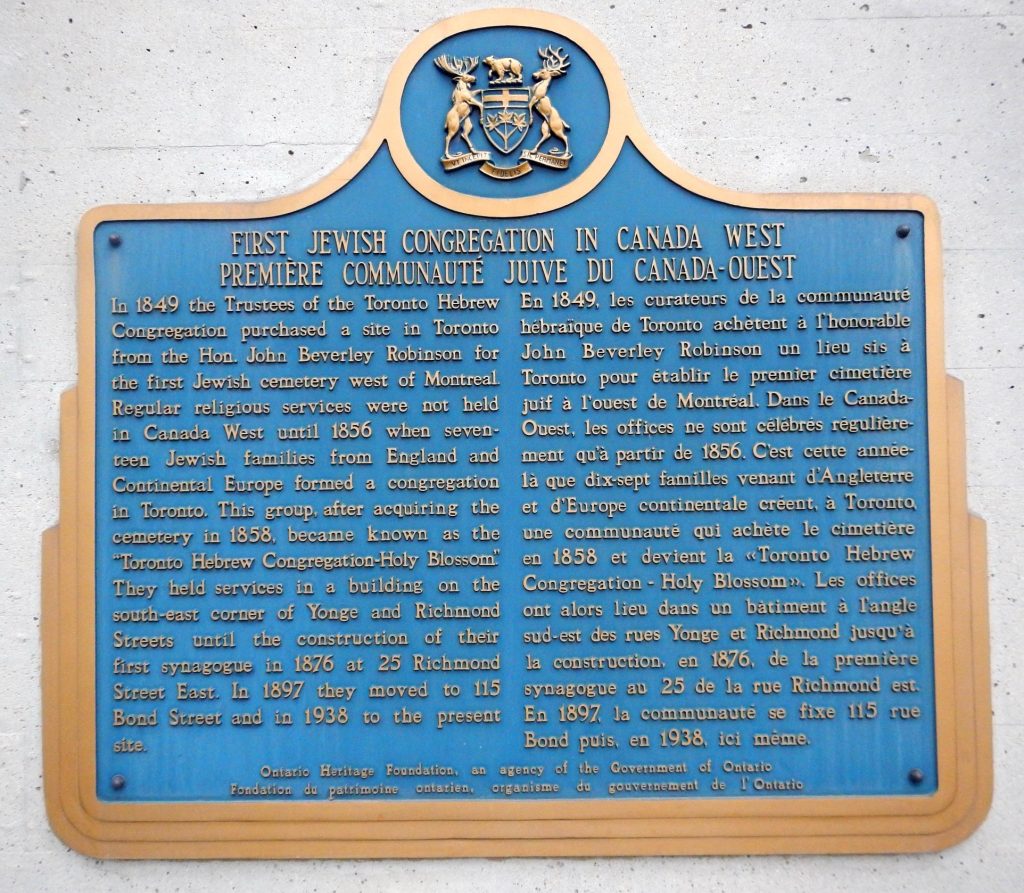Prominent Toronto Synagogue hosts Iftar Dinner
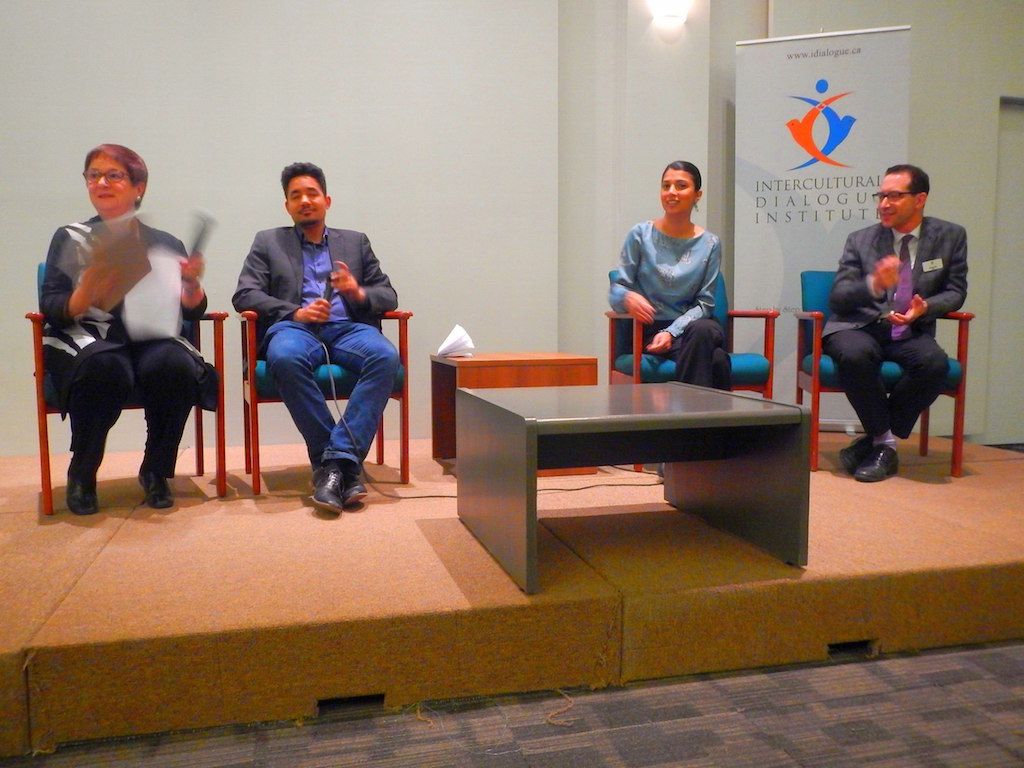
Holy Blossom Temple, one of Canada’s most influential synagogues, hosted an Iftar gathering that brought Muslims and Jews together to learn about each other’s traditions of fasting and to share in the fast-breaking meal on Monday, 27 May.
“Welcome to Holy Blossom Temple, it is our great honor and pleasure to be a host again for an Iftar program,” said Rabbi Michael Satz, Holy Blossom’s Associate Rabbi, in his welcoming remarks. “Holy Blossom has a great history of coming together with people of all faiths to work for understanding and tolerance and for justice and I am looking forward to talking about that tonight.”
“We all know, as people of faith, that coming together for a festive meal is really what brings families together, what brings communities together, what brings neighbors together,” he added. “We are blessed to live in a pluralistic society where people of different religions, people of different ideas, people of different ethnic backgrounds can come together and eat together, not always agreeing with each other, not always seeing things together, but when you sit across from each other and eat together you can’t hate each other and you create something new and that new community that you create spreads.”
The Iftar dinner was co-sponsored by the Intercultural Dialogue Institute, a non-profit organization whose aims are to promote enduring interfaith and intercultural cooperation, tolerance and dialogue.
The evening’s program included a presentation on fasting in Ramadan and an engaging panel discussion titled, ‘Countering Hate and Prejudice: Solidarity, Peace and Social Justice.’
“If we are thinking of countering hate and of a world without prejudice and of a place where people really live out solidarity across communities – those are all components of a socially just world,” said panelist Dr. Kofi Hope. “I believe that the struggle to build this world is not simply a secular struggle but it is aligning ourselves with the divine calling and connecting ourselves with the work of our ancestors as we were supposed to live as brothers and sisters together as one blessed community.”
“From a Christian perspective which I was raised in, this is what the work of Jesus of Nazareth was, this thing called the Kingdom of God, a place where the last would be first and the first would be last, a reordered society based upon equity and principles of inclusion for all.”
Dr. Kofi Hope is a Senior Policy Advisor at the Wellesley Institute, a Rhodes Scholar, Doctor of Philosophy in Politics, a community activist and youth advocate.
“When we think of our larger society and how we can reverse the tide of hate and growing intolerance, I think there is a large role for religion and for people of faith,” added Dr. Hope. “We actually need spiritual and religious voices speaking to what’s happening and using the ancient wisdom traditions and using our understanding of these deeper values to motivate folks.”
“I think it is so essential in these times that interfaith action and actions of spiritual leaders are bold, but also inclusive and welcoming, and using values to motivate folks, both those who are religious and those who are spiritual.”
Dr. Nadia Hasan, Deputy Director of the National Council of Canadian Muslims (NCCM), spoke of the need for people to stand up against hate and prejudice.
“What it requires is that we all pay attention and we stand up and not just be bystanders in this moment in history,” she said. “And what that means is that often we have to put ourselves in uncomfortable positions where we have to tell somebody that what they are saying is wrong or what they are saying is hateful or hurtful.”
“Standing up for justice is a huge part of the Muslim faith and is a huge part of all faiths and it is something we all have in common.”
Rabbi Michael Satz, in his closing remarks, called for greater cooperation among people of faith, “Coalitions with others have more power – coalitions can make change and that is why I dedicate much of my time as a Rabbi to build coalitions, to work with others to effect change.”
Founded in 1856, Holy Blossom Temple is Canada’s largest Reform synagogue with 6,500 members and the oldest Jewish congregation in Toronto.
A number of distinguished rabbis have led the Reform institution, including the late Gunther Plaut and Dow Marmur, now Rabbi Emeritus.
